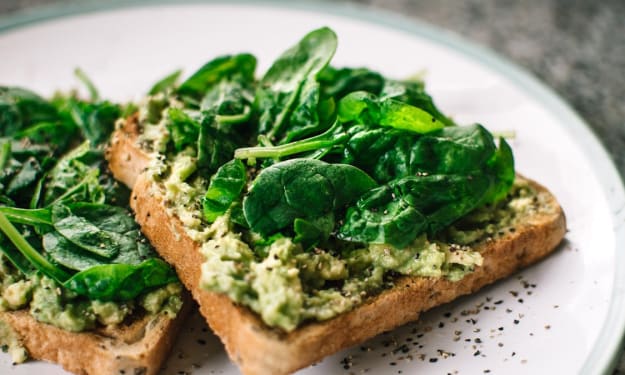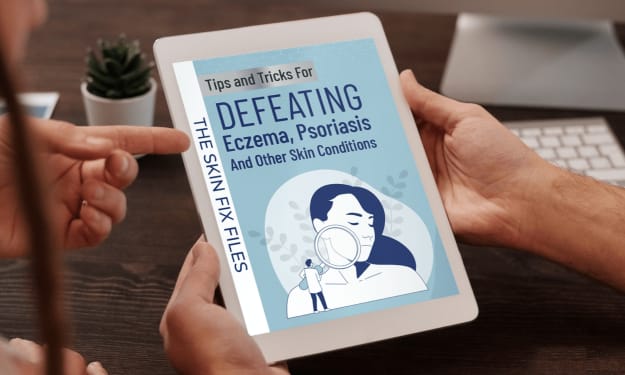The Ultimate Beginner's Guide to Keto - Everything You Need to Know To Start!
Keto, short for ketogenic diet, is a way of eating that focuses on keeping your carbohydrate intake very low. When you eat something high in carbs, your body produces glucose and insulin to process it. Left with little other options, your body burns fat instead to produce energy. This process is known as ketosis. When you’re in a state of ketosis, your body is burning fat instead of breaking it down and creating glucose. Keto dieters eat foods that are high in fat but almost no carbs. As a result, the body begins to burn its own fat stores for energy instead of carbohydrates.

What is the Keto Diet?
Keto is a low-carb diet focused on getting your body into a state of ketosis — a metabolic state when your body burns fat instead of carbs for energy. When your body enters ketosis, it releases chemicals called ketones as a byproduct, which are believed to increase weight loss. Keto diets became famous for their ability to help people lose weight quickly. According to a review published in October 2014 in the Journal of Obesity, people who follow a keto diet lose, on average, between nine and 16 pounds within one year. Keto diets are also known for helping people with type 2 diabetes or prediabetes improve their blood sugar levels. However, they aren’t recommended for people with diabetes who take medication or have serious health conditions like kidney disease.
Benefits of Keto
- Improve Mental Function -
People who start a keto diet may notice a difference in their energy and mental clarity right away, since going keto can help reduce blood sugar levels. A lower blood sugar level means there is less of it in your blood to impact your thinking.
- Promote Weight Loss -
The ketogenic diet can help you lose body fat, reduce inflammation, and improve your cholesterol levels.
- Reduce Risk of Disease -
Keto diets are also known for lowering risk factors for diseases like type 2 diabetes, heart disease, and certain cancers.
- Improve Athletic Performance -
Studies show that keto diets may help you perform better athletically by reducing the amount of lactic acid in your blood.
Keto Side Effects and Problems
Even if you’re trying to lose weight, you should be aware that keto diets can come with some risks. Here’s what health experts say you should be aware of before trying a keto diet. - Nutrient Deficiencies - Keto diets can definitely increase hunger levels and make you feel hungrier throughout the day. Eating foods that are high in fat can also lead to an increased risk of deficiencies in vitamins and minerals like calcium, vitamin D, iron, zinc, and magnesium. This is because your body doesn’t have enough vitamins or minerals to process fat. - Digestive Problems - If you experience digestive issues while on a keto diet, you’ll want to ease off the diet and eat a more balanced diet. A keto diet can cause symptoms like constipation, nausea, and diarrhea. - Bad for Your Bones - Keto diets are also not great for your bones. In fact, researchers say that people who follow a keto diet may have an increased risk of developing osteopenia or osteoporosis down the line. - Bad for Athletes - One study published in the Journal of the International Society of Sports Nutrition found that keto diets might even be bad for athletic performance, particularly among beginner athletes.
How to Start a Keto Diet
If you’re interested in starting a keto diet, there are a few things to keep in mind. First, you’ll want to drastically limit your carb intake. The standard keto diet has you consuming less than 20 grams of carbohydrates per day. For most people, this kind of drastic reduction in daily carb intake is unsustainable long-term. That said, if you’re looking for a short-term solution for weight loss, going keto may be helpful. You’ll also want to increase your daily intake of healthy fats like avocado, olive oil, coconut oil, and ghee. And, you’ll also want to eat high-protein foods, as they can help to curb hunger. Keto diets are focused on eating high-fat, low-carb foods, but you can also add in non-starchy vegetables like spinach, broccoli, and asparagus.
Bottomline
Keto diets are often used as a short-term weight loss solution, but they can also be a great long-term diet option. You’ll want to keep in mind that going keto is not easy, and it requires a lot of hard work. If you’re willing to put in the effort, however, keto diets can be a powerful tool for weight loss.





Comments
Engin Erener is not accepting comments at the moment
Want to show your support? Send them a one-off tip.